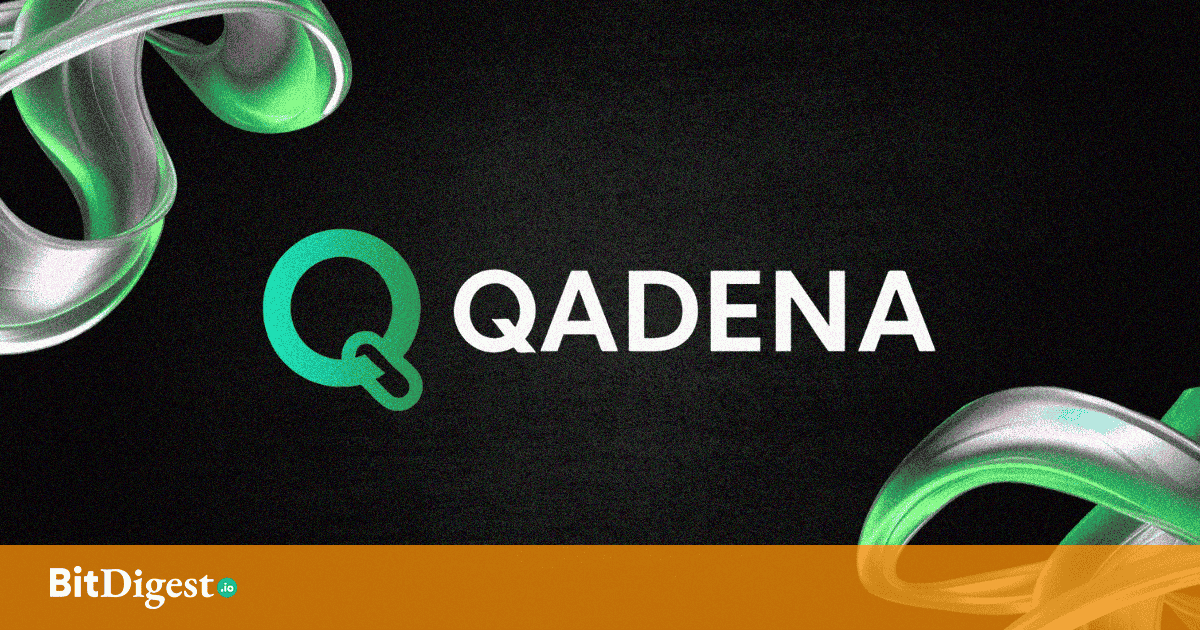The People Behind QADENA: A Glimpse at a New Budget Dashboard Inspired by Civic Tech Transparency Models
A new budget tracking tool quietly went live last week on the website of blockchain platform QADENA. Titled “National Budget in Action,” the dashboard enables public viewing of government allocation and disbursement data, complete with searchable filters by agency, region, and expenditure category.
While the feature does not cite any bill or law directly, its structure closely reflects proposals previously advanced by civic technologist Ann Cuisia, who called for digitally signed budget records, mirrored transparency logs hosted by civil society, and citizen-participation mechanisms for oversight.
“This model achieves the same verifiability promise as blockchain,” Cuisia told Bitdigest in a recent exclusive interview, “but without locking the law into one technology. It gives citizens access to truth in real time.”
QADENA’s implementation positions this vision as a platform-native tool rather than a legislative mandate. The dashboard is accessible via the Special Feature tab on QADENA’s homepage and includes:
- Disbursement-level audit trails from release to utilization
- Interactive filters across agencies, regions, and program categories
- Real-time figures reflecting allocations and spending flows
- Downloadable datasets for researchers, analysts, and watchdog groups
The interface appears structured for both technical and non-technical users, aimed at improving traceability and promoting verifiability as part of the platform’s broader design ethos.
Positioned for Public Infrastructure Use
QADENA, first introduced as a next-generation blockchain purpose-built for business and government applications, emphasizes compliance, privacy, and operational utility. Unlike public blockchains focused on token speculation, QADENA’s infrastructure is designed to serve real-world functions such as digital identity (via eKYC.ph), secure notarization, merchant payments, and modular compliance tools.
The newly released budget dashboard is the first major public feature surfaced ahead of its mainnet launch in 2026.
According to QADENA’s published roadmap, additional modules will follow, including:
- Decentralized ID verification with reusable credentials
- Compliant payment rails for merchants and cooperatives
- Digital signing systems developed with regulators
- Governance mechanisms incorporating verified stakeholder identities
These features are being positioned not only for financial transactions but also for public-sector use cases, including secure disbursements and real-time audit trails—elements that connect directly to ongoing policy discussions in Congress and the Senate.
Contributors from Tech, Government, and Civil Society
Behind QADENA is a diverse group of professionals from fintech, public service, enterprise IT, and the civic tech community. They include:
- Ann Cuisia – CEO of TraXion, long-time civic-tech advocate who once raised $2.6 during the 2018-2019 ICO boom
- Donald Lim – President and COO of DITO CME, a pioneer of digital marketing in the Philippines
- Al Villarica – CTO for AXA Asian Markets; former Chief Enterprise Architect at Smart Communications
- Kristoffer Anthony Patron – DTaka COO, executive focused on financial access and fund traceability
- Jeffrey Ian Dy – Former DICT Undersecretary for Cybersecurity and digital safeguards
- Clarito Magsino – Assistant Secretary for Systems Productivity at the Department of Budget and Management
- Jason Torres – Founder of BetterGovPH, advocate for civic digital platforms
- Luis Buenaventura – Head of GCrypto; public commentator on blockchain use in finance and governance
- Eliezer Rabadon – DVCode CEO and a Blockchain Council PH trustee
- Tirso “Mon” Gutierrez – Chief of Staff at DICT’s eGov Undersecretary’s Office
This composition reflects QADENA’s broader ambition: to offer a verifiable, compliance-ready infrastructure grounded in both regulatory trust and technical credibility.
The SBN 1330 ‘Critic-Approved’ Initiative?
The launch coincides with renewed legislative attention on blockchain-based budget tracking. Several proposals—referred to collectively as the Blockchain the Budget initiatives—seek to mandate blockchain systems for public financial transparency. Some members of the QADENA circle have notably expressed skepticism and disagreement about rigid legislative mandates.
“I have very low confidence that [national blockchain tracking] will work, because it’s never been done anywhere before at this scale,” said Luis Buenaventura II in a recent Bitdigest Q&A.
“Technologists often see themselves as saviors, but without domain knowledge, that’s a recipe for failure.”
Former Department of Information and Communications Technology Usec. Jeffrey Ian Dy has also warned that placing the Philippine national budget on a blockchain ledger, though may improve transparency, cannot be expected to prevent corruption.
Rather than pushing a specific legal requirement, QADENA’s approach provides a functional alternative, demonstrating how transparency tools can be deployed without requiring legislation to endorse any one protocol.
While it remains to be seen whether tools like QADENA’s budget dashboard will be adopted by public agencies, the launch signals that civic tech solutions are advancing regardless of legislative timelines.
Whether through formal partnerships or citizen-led platforms, systems like this may serve as reference models for future discussions around transparency, compliance, and digital public infrastructure.
.svg)


.svg) SHARE TO FACEBOOK
SHARE TO FACEBOOK SHARE TO TWITTER/X
SHARE TO TWITTER/X SHARE TO LINKEDIN
SHARE TO LINKEDIN SEND TO MAIL
SEND TO MAIL

.svg)


.svg)